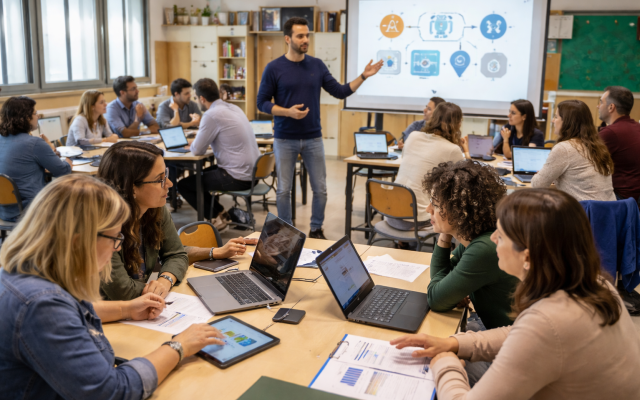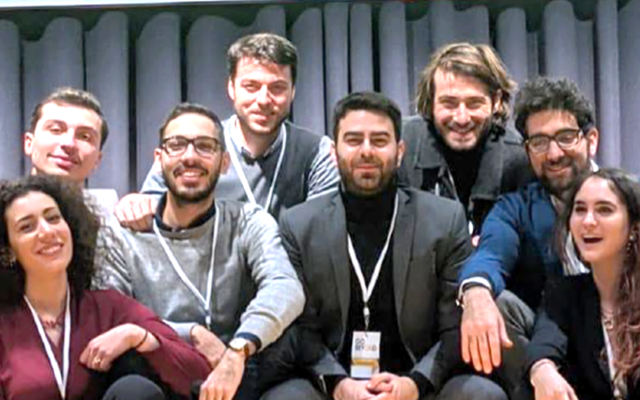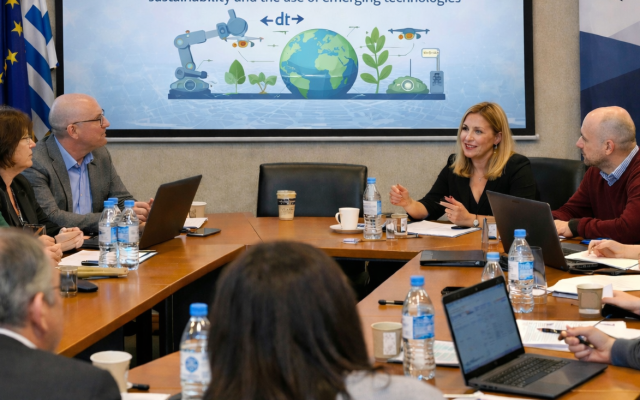Based on an innovative on-line game, “Enact” aims to improve the communication and negotiation skills of users via one of the most innovative platforms that have been developed in Europe.
The initial project results were presented today – Friday, June 3 – at the “Spazio Europa” in Rome. Participants included:
- Andrea Di Ferdinando, Research and Development Manager, Aidvanced srl
- Sylvie Galaup, Project Manager, Fundetec
- Onofrio Gigliotta, Psychology Researcher, “Federico II” University of Naples
- Davide Marocco, Professor of Computational Science, Electronics and Mathematics at the University of Plymouth and Project Coordinator
- Annaleda Mazzucato, Project Manager, Fondazione Mondo Digitale
- Ozgur Yaşar Akyar, Project Coordinator, Turkish Ministry of Youth and Sports - General Directorate for Sports
Financed by the European Union as part of the “LLP - KA3 Multilateral projects” programme, Project ENACT - Enhancing Negotiation skills through on-line Assessment of Competencies and interactive mobile Training is a milestone in training and psychological evaluation: psychological modelling methodologies, use of innovative technologies (e-learning, mobile app, Internet, artificial intelligence), and AI systems.
Project ENACT is coordinated by the University of Plymouth; partners include: "Federico II” University of Naples, Aidvanced srl (an innovative start-up specialized in robotics and AI), Fondazione Mondo Digitale, Turkish Ministry of Sports and Fundetec.
During the initial period of activity, researchers tested the platform on a range of targets, including high school students (Rome, Italy), doctoral students (Naples, Italy; United Kingdom), young men and women participating in training and sports programmes (Turkey) and SME managers (Spain). Anyone can test the platform (available on the project website: enactskills.eu) where a virtual person interacts with users in a negotiation scenario. Users communicate with this avatar, choosing amongst one of four possible answers. The answers are then used to evaluate the user’s negotiation style.
“The objective of ENACT,” explains Davide Marocco, Professor of Computational Science, Electronics and Mathematics at the University of Plymouth and Project Coordinator, “is to develop and test a didactic and innovative evaluation methodology to improve negotiation and communication skills in both formal and informal educational contexts. The on-line game that we have developed as an innovative training methodology can be used both as a tool for self-learning and in group learning contexts, as well as in traditional learning contexts.”
“The software was developed,” explains Onofrio Gigliotta, Psychology Researcher at the "Federico II” University of Naples and one of the project managers, “with the Rahim and Bonoma Model, as it emphasises the fact that negotiation styles can be learned. It is both judgement and value-free and does not consider one style better than another, but rather posits that all styles can be used, based on the context and needs. The model is based on a two-variable system that can easily be structured as an operation or algorithm.”
To date, the management of human resources has been assigned to a trusted team of professional work psychologists who have tested candidates with multiple tests. The cost of the process, however, is not sustainable for SMEs that continue to represent the backbone of the European productive system. In fact, 91.8% of European enterprises have less than 9 employees; in Italy, this is true for 95% of enterprises. This is clearly an obstacle that limits enterprise ability to fully evaluate candidate competences on the basis of the technical and social skills.
Thanks to the creation of a virtual environment and the innovative use of AI technology, ENACT has laid the foundations for the creation of the first low-cost tool to assess soft skills in a work environment.



